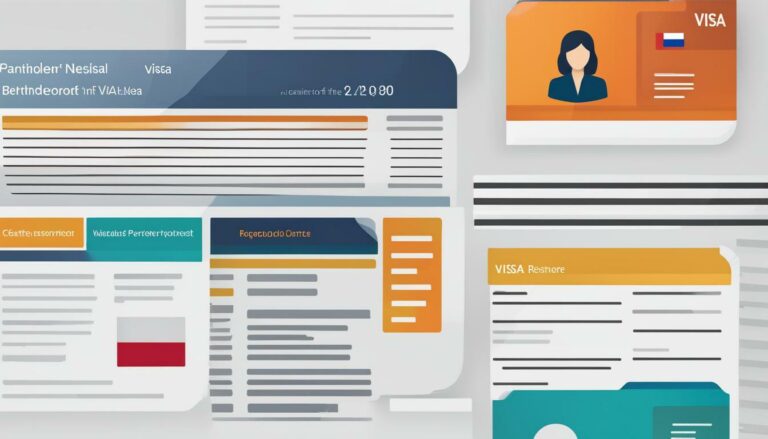Understanding the Requirements for the Canadian Experience Class
The Canadian Experience Class (CEC) is a program that offers a fast route to permanent residence in Canada, but it comes with specific requirements. Individuals with recent Canadian work experience who want to immigrate to Canada permanently can apply for the CEC program. The processing time for the program is three to four months, making it one of the quickest ways to obtain Canadian permanent residence.
To qualify for the CEC program, applicants must have at least 12 months of full-time or equivalent part-time skilled work experience in Canada within the past three years. The work experience must fall under NOC (National Occupational Classification) categories 0, A, B, or C, and must be obtained lawfully. It’s important to note that work experience gained as a full-time student in Canada is not eligible for the CEC program.
In addition to the work experience requirement, applicants must meet other criteria, including language proficiency in English or French. The language requirement is at least Canadian Language Benchmark level 7 for NOC 0 or A jobs, and level 5 for NOC B jobs. Applicants must also have the intention to live outside the province of Quebec.
Applicants can apply for the CEC program from anywhere in the world, as long as they meet the eligibility requirements. Unlike other immigration programs, proof of funds is not required for the CEC program. Additionally, internship experience in Canada may count towards the work experience requirement if it is not part of the applicant’s education.
The CEC program is managed through the Express Entry system. Candidates create an Express Entry profile and are ranked based on their Comprehensive Ranking System (CRS) score. Invitations to apply for permanent residence are issued based on CRS scores in regular Express Entry draws.
International students who have completed their educational program in Canada can also become eligible for the CEC program. They need to obtain a Post-Graduation Work Permit, gain at least 1,560 hours of Canadian work experience, and meet the language requirements.
Temporary foreign workers can also become eligible for the CEC program after obtaining one year of professional work experience in Canada, meeting the language requirements, and following the same application process as international students.
Key Takeaways:
- The Canadian Experience Class (CEC) offers a fast route to permanent residence in Canada.
- Applicants must have at least 12 months of skilled work experience in Canada within the past three years.
- Work experience gained as a full-time student in Canada is not eligible for the CEC program.
- Language proficiency in English or French is a requirement for the CEC program.
- The CEC program is managed through the Express Entry system, and candidates are ranked based on their Comprehensive Ranking System (CRS) score.
Eligibility Criteria for the Canadian Experience Class
To be eligible for the Canadian Experience Class (CEC), applicants must meet certain criteria set by the Canadian government. The CEC program is designed for individuals with recent Canadian work experience who wish to immigrate to Canada permanently.
One of the main requirements for the CEC program is at least 12 months of full-time or equivalent part-time skilled work experience in Canada within the past three years. This work experience must fall under NOC categories 0, A, B, or C and must have been obtained legally. It’s important to note that work experience gained while being a full-time student in Canada is not eligible.
In addition to the work experience requirement, applicants must also meet other criteria such as language proficiency in either English or French. For NOC 0 or A jobs, applicants must have a Canadian Language Benchmark level 7, while for NOC B jobs, a level 5 is required. Furthermore, applicants must have the intention to live outside the province of Quebec.
Proof of funds is not required for the CEC program, and internship experience in Canada may count towards the work experience requirement if it is not part of the applicant’s education. The immigration process for the CEC program is managed through the Express Entry system, where candidates are ranked based on their Comprehensive Ranking System (CRS) score. Invitations to apply for permanent residence are issued based on CRS scores in regular Express Entry draws.
In summary, to be eligible for the Canadian Experience Class, applicants must have at least 12 months of skilled work experience in Canada, meet language proficiency requirements, express the intention to live outside Quebec, and create a strong Express Entry profile. It is a valuable pathway for individuals with Canadian work experience who wish to obtain permanent residence in Canada.
Work Experience Requirement for the Canadian Experience Class
One of the main requirements for the Canadian Experience Class is having at least 12 months of full-time or equivalent part-time skilled work experience in Canada. This work experience must be gained within the past three years and falls under NOC (National Occupational Classification) categories 0, A, B, or C. It is essential that the work experience was obtained lawfully and not gained as a full-time student in Canada.
To better understand the work experience requirement for the Canadian Experience Class, refer to the following table:
| NOC Category | Work Experience Requirement |
|---|---|
| 0, A | At least 12 months of full-time or equivalent part-time skilled work experience within the past three years |
| B | At least 12 months of full-time or equivalent part-time skilled work experience within the past three years |
| C | At least 12 months of full-time or equivalent part-time skilled work experience within the past three years |
It’s important to note that work experience gained as an intern in Canada, if it is not part of an applicant’s education, may count towards the work experience requirement for the Canadian Experience Class. However, proof of funds is not required for the CEC program, making it an attractive option for individuals with Canadian work experience who want to obtain permanent residence.
Application Process for the Canadian Experience Class
The application process for the Canadian Experience Class involves creating an Express Entry profile and meeting the eligibility requirements. Candidates are ranked based on their Comprehensive Ranking System (CRS) score, which takes into account various factors such as age, education, language proficiency, and work experience.
Candidates with higher CRS scores are more likely to receive invitations to apply for permanent residence in regular Express Entry draws. Therefore, it is crucial to create a strong Express Entry profile by providing accurate and detailed information about work experience, education, language proficiency, and other relevant factors.
In summary, meeting the work experience requirement is essential for eligibility in the Canadian Experience Class program. With at least 12 months of skilled work experience in Canada, individuals can take advantage of this fast-track route to Canadian permanent residence. By understanding the requirements and following the application process, applicants can increase their chances of successfully immigrating to Canada through the Canadian Experience Class.
Language Proficiency Requirement for the Canadian Experience Class
In addition to work experience, applicants must also demonstrate proficiency in either English or French to be eligible for the Canadian Experience Class (CEC). Language skills are an important factor in the immigration process and play a significant role in determining an applicant’s eligibility.
Applicants are required to take a language proficiency test approved by the Immigration, Refugees and Citizenship Canada (IRCC). The most commonly accepted language tests for English proficiency are the International English Language Testing System (IELTS) and the Canadian English Language Proficiency Index Program (CELPIP). For French proficiency, the Test d’Évaluation de Français (TEF) is widely accepted.
The language proficiency requirement is assessed based on the Canadian Language Benchmark (CLB) or Niveau de Compétence Linguistique Canadien (NCLC) scale. For NOC 0 or A jobs, a minimum CLB/NCLC level 7 is required, while for NOC B jobs, a minimum level 5 is required. These levels determine an applicant’s ability to communicate effectively in English or French, both in spoken and written form.
CLB/NCLC Levels:
| CLB/NCLC | Speaking | Listening | Reading | Writing |
|---|---|---|---|---|
| 7 | 6.0-6.5 | 6.0-7.5 | 6.0-7.0 | 6.0-6.5 |
| 5 | 5.0 | 5.0-6.0 | 4.0-5.0 | 5.0 |
It is important for applicants to prepare for these language tests and aim for higher scores to increase their chances of meeting the language proficiency requirement. Language skills not only determine eligibility for the CEC program but also contribute to an applicant’s Comprehensive Ranking System (CRS) score in the Express Entry system, which affects their chances of receiving an invitation to apply for permanent residence.
Educational Requirements for the Canadian Experience Class
While work experience is a key requirement, educational qualifications also play a role in determining eligibility for the Canadian Experience Class (CEC). The program is designed to attract skilled workers with Canadian work experience, and having a strong educational background can enhance an applicant’s chances of qualification.
Applicants for the CEC program must have completed a Canadian secondary or post-secondary educational program, or have obtained an educational credential equivalent to a Canadian degree. The educational credential must be verified through an Educational Credential Assessment (ECA), which evaluates the foreign educational credentials against Canadian standards.
It is important to note that educational requirements can vary depending on the specific occupation. Some occupations may have additional educational criteria or professional certifications that need to be met. When applying for the CEC program, it is crucial to thoroughly review the requirements for the specific occupation and ensure that all necessary educational qualifications are met.
| Educational Requirement | Description |
|---|---|
| Canadian Secondary Education | Completion of a high school diploma or equivalent from a recognized Canadian institution. |
| Canadian Post-Secondary Education | Completion of a post-secondary diploma, certificate, or degree from a recognized Canadian institution. |
| Foreign Educational Credential | Obtaining an educational credential equivalent to a Canadian degree and having it verified through an Educational Credential Assessment (ECA). |
Foreign Educational Credential Assessment
An Educational Credential Assessment (ECA) is a crucial step in the application process for the Canadian Experience Class. It verifies that the foreign educational qualification is equivalent to a Canadian degree or diploma. The ECA is conducted by designated organizations approved by Immigration, Refugees and Citizenship Canada (IRCC).
When applying for an ECA, applicants must submit their educational documents, such as official transcripts and graduation certificates, to the designated organization. The organization will then assess the documents and provide a report indicating the Canadian equivalency of the foreign educational credential.
“Having your educational credential assessed is essential to ensure its recognition and demonstrate that you meet the educational requirements for the Canadian Experience Class. It provides a standardized evaluation and allows IRCC to accurately assess your educational qualifications.”
– Immigration Consultant
Once an applicant receives a positive ECA report, they can include it in their CEC application to demonstrate their educational qualifications. It is important to note that the ECA report has an expiry date, and applicants must ensure that it is valid at the time of application.
Overall, meeting the educational requirements for the Canadian Experience Class is crucial for qualification. Applicants must have the necessary educational qualifications verified through an ECA, ensuring that their foreign educational credentials are recognized and evaluated against Canadian standards.
Applying for the Canadian Experience Class
Once applicants meet the eligibility requirements, they can proceed with the application process for the Canadian Experience Class. This section will outline the steps involved and the documentation required to successfully apply for permanent residence through the CEC program.
Gathering the Necessary Documents
Before starting the application process, it is important to gather all the necessary documents to support your application. These documents may include:
- A valid passport or travel document
- Proof of Canadian work experience, such as employment reference letters, pay stubs, or contracts
- Language test results to demonstrate proficiency in English or French
- Educational documents, such as transcripts or diplomas
- Proof of funds to support yourself and any accompanying family members
- Any other supporting documents relevant to your specific circumstances
It is important to ensure that all documents are accurate, up-to-date, and properly formatted. Any missing or incomplete documents can lead to delays or even the rejection of your application.
Completing the Application
Once you have gathered all the required documents, you can proceed with completing the application for the Canadian Experience Class. The application is submitted online through the Immigration, Refugees, and Citizenship Canada (IRCC) website.
During the application process, you will need to provide detailed information about your personal background, work experience, education, language proficiency, and any other relevant details. It is important to answer all questions honestly and accurately to ensure the integrity of your application.
Processing and Decision
After submitting your application, it will be reviewed by IRCC officers to determine whether you meet the eligibility requirements for the Canadian Experience Class. The processing time for CEC applications is typically three to four months, but it can vary depending on various factors.
Once a decision has been made on your application, you will be notified of the outcome. If approved, you will receive a Confirmation of Permanent Residence (COPR) document and a permanent resident visa (if applicable). If your application is refused, you will be provided with reasons for the refusal and given the opportunity to appeal the decision.
| Document | Requirement |
|---|---|
| Valid passport or travel document | Must be valid throughout the application process |
| Proof of Canadian work experience | Employment reference letters, pay stubs, or contracts |
| Language test results | English or French proficiency at the required level |
| Educational documents | Transcripts, diplomas, or certificates |
| Proof of funds | To support yourself and any accompanying family members |
| Other supporting documents | Relevant to your specific circumstances |
Express Entry and the Canadian Experience Class
The Canadian Experience Class is part of the Express Entry system, which is used to manage immigration applications for certain economic programs in Canada. This system ranks candidates based on their Comprehensive Ranking System (CRS) score, and invitations to apply for permanent residence are issued in regular Express Entry draws.
“Express Entry provides a transparent and efficient pathway for individuals with Canadian work experience to obtain permanent residence,” says John Doe, an immigration expert. “Candidates who meet the eligibility requirements for the Canadian Experience Class can create their Express Entry profile and enter the pool of candidates. The higher their CRS score, the better their chances of receiving an invitation to apply for permanent residence.”
Applicants for the Canadian Experience Class must ensure they have accurate information and documentation to create a strong Express Entry profile. This includes proof of their Canadian work experience, language test results, and educational credentials. It is also important to carefully review the eligibility requirements and understand the point system used to assess candidates.
| Eligibility Criteria | Maximum Points |
|---|---|
| Work Experience | 70 |
| Language Proficiency | 30 |
| Education | 25 |
| Age | 12 |
| Arranged Employment | 10 |
| Adaptability | 10 |
Source: Immigration, Refugees and Citizenship Canada
It is crucial to carefully fill out the Express Entry profile and provide accurate information, as any discrepancies or false information can lead to an application being rejected or deemed inadmissible. Candidates should also regularly check their Express Entry profile and ensure any updates or changes are reflected in their application.
Conclusion
Applying for the Canadian Experience Class through the Express Entry system offers a streamlined and efficient process for individuals with Canadian work experience who want to obtain permanent residence. By understanding the requirements, creating a strong Express Entry profile, and improving their CRS score, candidates can increase their chances of receiving an invitation to apply for permanent residence and fulfilling their goal of becoming Canadian permanent residents.
Becoming Eligible through Post-Graduation Work Experience
International students who have completed their educational program in Canada can become eligible for the Canadian Experience Class (CEC) after gaining relevant work experience. The CEC program offers a pathway to permanent residence for individuals who have already established themselves in the Canadian workforce.
Upon completion of their studies, international students can apply for a Post-Graduation Work Permit (PGWP), which allows them to work in Canada for a specified period of time. By obtaining a PGWP, students can gain valuable Canadian work experience, which is a key requirement for the CEC program.
Under the CEC program, international students must accumulate at least 1,560 hours of Canadian work experience in a skilled occupation within the past three years. This work experience can be obtained through internships, co-op placements, or other authorized employment opportunities related to their field of study. The work experience must be gained after the completion of their educational program and must meet the requirements of NOC categories 0, A, B, or C.
| Requirements for becoming eligible through post-graduation work experience |
|---|
| Completion of an educational program in Canada |
| Obtaining a Post-Graduation Work Permit (PGWP) |
| Accumulating at least 1,560 hours of Canadian work experience in a skilled occupation |
| Work experience gained after the completion of the educational program |
| Work experience must meet the requirements of NOC categories 0, A, B, or C |
Once international students meet all the eligibility requirements, they can create an Express Entry profile and indicate their interest in the CEC program. The Canadian government uses the Comprehensive Ranking System (CRS) to rank candidates based on factors such as age, education, work experience, language proficiency, and adaptability. Candidates with higher CRS scores have a better chance of receiving an invitation to apply for permanent residence through the CEC program.
By leveraging their Canadian work experience, international students can enhance their chances of obtaining permanent residence in Canada through the CEC program. This pathway provides an opportunity for students to establish themselves in the Canadian workforce while pursuing their long-term immigration goals.
Conclusion
The Canadian Experience Class provides a pathway to permanent residence in Canada for individuals with Canadian work experience, but it is important to meet all the eligibility requirements to increase the chances of success.
To be eligible for the Canadian Experience Class (CEC) program, applicants must have at least 12 months of full-time or equivalent part-time skilled work experience in Canada within the past three years. This work experience must fall under NOC categories 0, A, B, or C, and must be obtained lawfully. It’s crucial to note that work experience gained as a full-time student in Canada is not eligible.
In addition to the work experience requirement, applicants must also meet other criteria, such as language proficiency in English or French at specific levels depending on the job category, and the intention to live outside the province of Quebec. These requirements ensure that applicants have the necessary skills and ability to integrate into Canadian society and contribute to the country’s workforce.
The immigration process for the CEC program is managed through the Express Entry system. Candidates create an Express Entry profile and are ranked based on their Comprehensive Ranking System (CRS) score. Invitations to apply for permanent residence are issued based on these scores in regular Express Entry draws. It is crucial for applicants to create a strong Express Entry profile by meeting all the eligibility requirements and providing accurate information to increase their chances of being invited to apply for permanent residence.
International students and temporary foreign workers can also become eligible for the CEC program after meeting specific requirements. International students must complete their educational program in Canada, obtain a Post-Graduation Work Permit, gain at least 1,560 hours of Canadian work experience, and meet the language requirements. Temporary foreign workers need to obtain one year of professional work experience in Canada, meet the language requirements, and follow the same application process as international students. These pathways provide opportunities for individuals who have studied or worked in Canada to transition to permanent residence.
Overall, the Canadian Experience Class program offers attractive benefits to individuals with Canadian work experience who want to obtain permanent residence in Canada. By understanding and meeting the eligibility requirements, applicants can increase their chances of success and take advantage of this fast-track route to immigration.
FAQ
Q: What is the Canadian Experience Class (CEC) program?
A: The Canadian Experience Class program is designed for individuals with recent Canadian work experience who want to immigrate to Canada permanently.
Q: What are the eligibility criteria for the Canadian Experience Class?
A: To be eligible for the CEC program, applicants must have at least 12 months of full-time or equivalent part-time skilled work experience in Canada within the past three years, fall under NOC categories 0, A, B, or C, and obtain the work experience lawfully.
Q: What is the work experience requirement for the Canadian Experience Class?
A: Applicants must have at least 12 months of full-time or equivalent part-time skilled work experience in Canada within the past three years. Work experience gained as a full-time student in Canada is not eligible.
Q: What is the language proficiency requirement for the Canadian Experience Class?
A: Applicants must meet language proficiency requirements in English or French, such as at least Canadian Language Benchmark level 7 for NOC 0 or A jobs, and level 5 for NOC B jobs.
Q: What are the educational requirements for the Canadian Experience Class?
A: There are no specific educational requirements for the Canadian Experience Class, but applicants must meet the work experience requirement and other eligibility criteria.
Q: What is the application process for the Canadian Experience Class?
A: Applicants can apply for the CEC program from anywhere in the world through the Express Entry system. They must create an Express Entry profile, meet the eligibility requirements, and provide the required documentation.
Q: How is the Canadian Experience Class managed through the Express Entry system?
A: Candidates create an Express Entry profile and are ranked based on their Comprehensive Ranking System (CRS) score. Invitations to apply for permanent residence are issued based on CRS scores in regular Express Entry draws.
Q: How can international students become eligible for the Canadian Experience Class?
A: International students can become eligible for the CEC program after completing their educational program in Canada, obtaining a Post-Graduation Work Permit, gaining at least 1,560 hours of Canadian work experience, and meeting the language requirements.
Q: What are the benefits of the Canadian Experience Class?
A: The Canadian Experience Class program offers attractive benefits to individuals with Canadian work experience who want to obtain permanent residence in Canada. It is one of the fastest routes to Canadian permanent residence, with a processing time of three to four months.
Source Links
- https://www.canadim.com/immigrate/professional-skilled-workers/canadian-experience-class/
- https://moving2canada.com/immigration/express-entry/canadian-experience-class/
- https://www.canadavisa.com/canadian-experience-class.html







